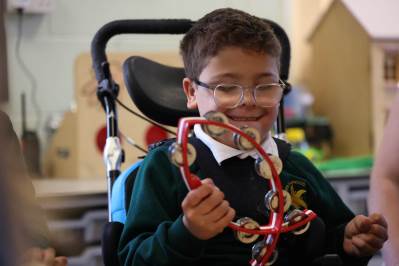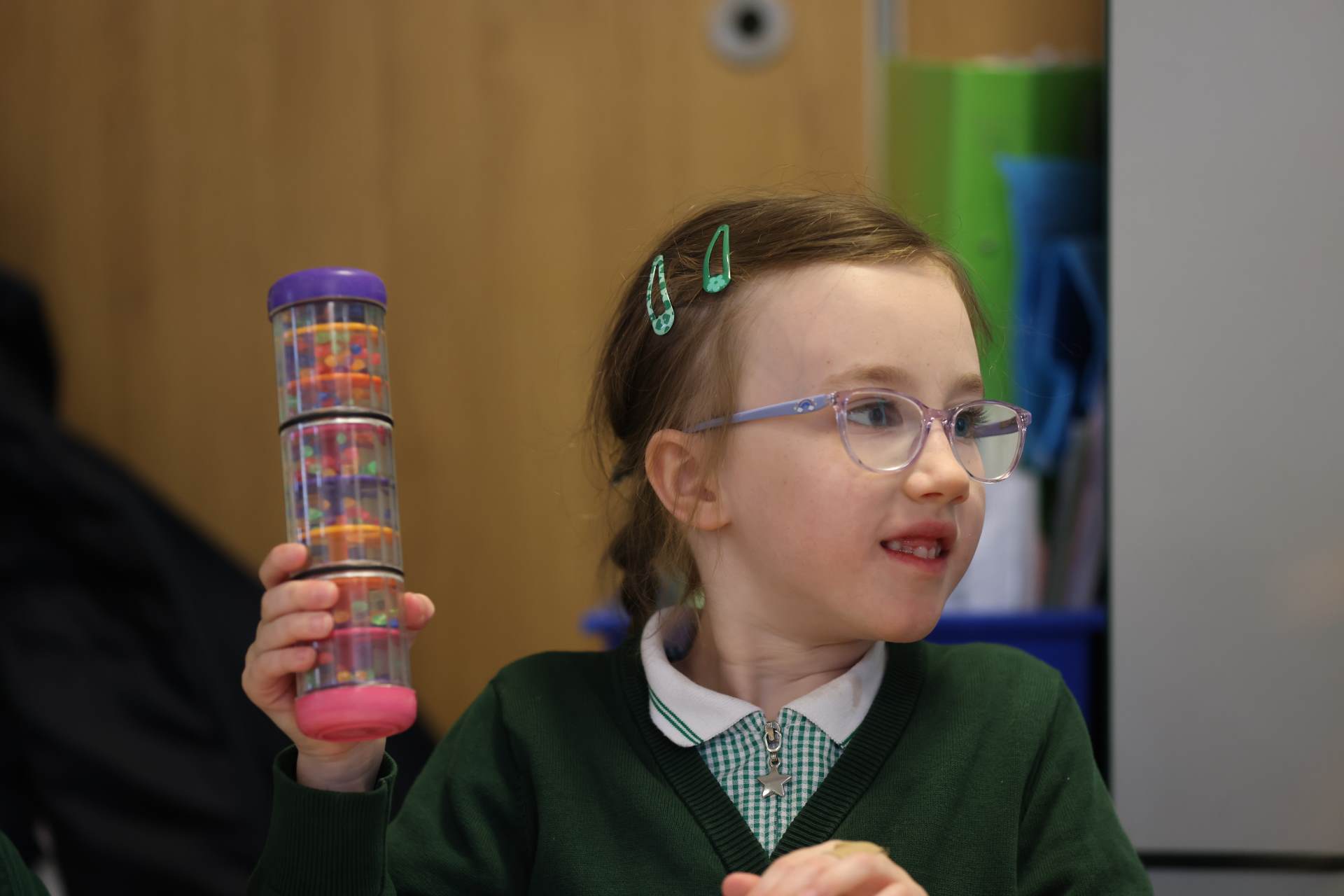Music
Intent
Music is a big part of the Springwood Heath world. Music is so important here at Springwood Heath because it is a universal language that embodies one of the main forms of creativity and it is recognised to have a strong impact on the way children learn in multiple subjects as well as being fun and creative.
We aim for children to gain a strong understanding of what music is through listening, singing, playing, evaluating, analysing, and composing across a wide variety of styles, historical periods, traditions, and musical genres through our curriculum. We want to develop a curiosity for music, as well as an understanding and importance of all types of music.  We learn to play instruments such as guitar, keyboard, drums, glockenspiel and ukulele, as well as having different musical visitors to our school throughout the year. For our Music lessons we follow a Charanga music scheme called the English Model Curriculum.
We learn to play instruments such as guitar, keyboard, drums, glockenspiel and ukulele, as well as having different musical visitors to our school throughout the year. For our Music lessons we follow a Charanga music scheme called the English Model Curriculum.
We also love to sing and are known as the singing school. With our choir we have sung on CD with other children from other schools and with our wonderful friends from Kingswood Manor Residential Home too!
Implementation
With each unit centred on an age-appropriate Social Question and Musical Spotlight, children are encouraged to think deeply about the world, their communities, and their relationships with others. Alongside this each unit offers an opportunity for a musical focus which deepens the children’s musical knowledge and understanding.
Early Years
In our Reception class, Music is an essential part of the children’s learning journey. Rhyme and rhythm are used throughout the learning of Phonics (RWI) Maths and Spanish. Children learn a wide range of songs and rhymes and develop skills for performing together along with rhythm by dancing and beating glockenspiels. Singing and music making opportunities are used frequently to embed learning and develop musical awareness.Key Stage 1
In KS1, the children will begin to recognise a connection between sound and symbol. They will embed an understanding of pulse, rhythm and pitch, laying the foundations for KS2 where they will start to formally read music
National Curriculum
Pupils should be taught to:
- Use their voices expressively and creatively by singing songs and speaking chants and rhymes
- Play tuned and untuned instruments musically
- Listen with concentration and understanding to a range of high-quality live and recorded music
- Experiment with, create, select and combine sounds using the interrelated dimensions of music
Key stage 2
National Curriculum
Key stage 2
Pupils should be taught to sing and play musically with increasing confidence and control. They should develop an understanding of musical composition, organising and manipulating ideas within musical structures and reproducing sounds from aural memory.
Pupils should be taught to:
- Play and perform in solo and ensemble contexts, using their voices and playing musical instruments with increasing accuracy, fluency, control and expression
- Improvise and compose music for a range of purposes using the interrelated dimensions of music
- Listen with attention to detail and recall sounds with increasing aural memory
- Use and understand staff and other musical notations
- Appreciate and understand a wide range of high-quality live and recorded music drawn from different traditions and from great composers and musicians
- Develop an understanding of the history of music
Impact
At Springwood heath, our intention is that our children will have a wide range of music knowledge which they will be able to use to create original, imaginative, and individual work, both in composing and performing.





